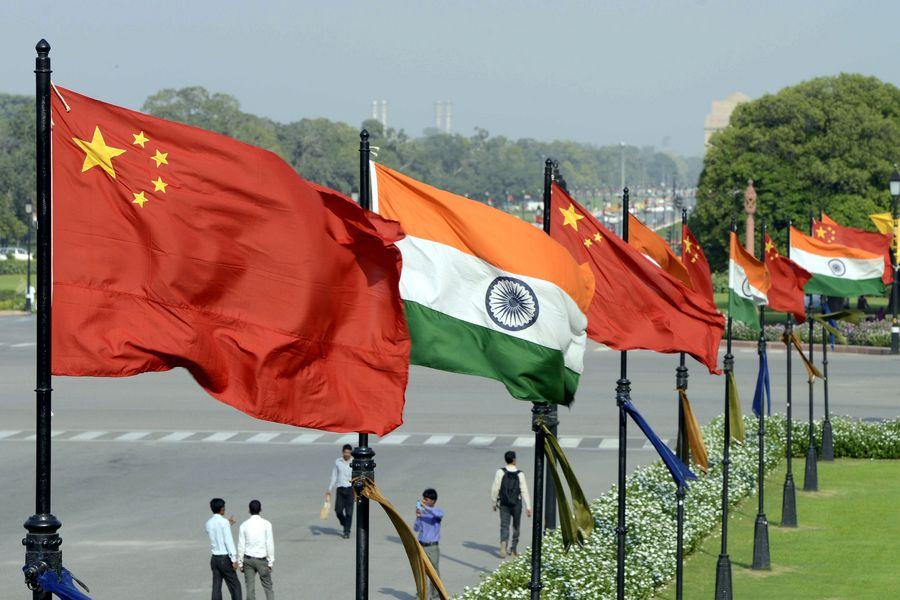
Indian and Chinese national flags flutter side by side at the Raisina hills in New Delhi, India, in this file photo. [Photo/Xinhua]
This is an editorial from China Daily.
As neighbors and the two largest developing countries, China and India have more common interests than differences. Seeking common development and prosperity being common pursuits.
With India's parliamentary election result hopefully reducing the jingoism in India, there is no need for the territorial dispute in the border region between the two neighbors to be hyped up and allowed to define the overall bilateral ties.
The two countries should demonstrate they have the wisdom to settle the dispute through negotiations in good faith. To that purpose, while maintaining their close communication through diplomatic and military channels, they should not allow any external power to take advantage of their border dispute to sow discord between them.
Some Western countries have encouraged India to become a participant in their efforts to contain China during the past two terms of the Narendra Modi government, seeking to drive a wedge between New Delhi and Beijing.
Although the border dispute has flared up and the Indian government has been implementing protectionist measures targeting Chinese companies, investments and imports since 2020, the bilateral trade volume has remained sizable and stable, staying between $120 billion and $130 billion over the past three years. This should prompt New Delhi not to let its Western supplicants have its ear.
Relying heavily on China for raw materials for its services and manufacturing industries these years, India should realize that it is unrealistic to seek to decouple its economy from that of China.
It should also recognize that China's development does not represent risks, uncertainties or threats to India, but rather growth, development and opportunities, as is true vice versa. China should by no means be made the scapegoat for India's domestic problems, and neither nationalism nor jingoism should be permitted to hijack New Delhi's China policy.
Combined, the population of the two countries accounts for about 37.5 percent of the global population. The two neighbors should be open to each other's development and always make joint efforts to approach bilateral relations from a strategic height and long-term perspective. The strong complementarity between their economic structures and development stages makes them good partners; their historical cultural and people-to-people bonds make them good neighbors; and by upholding their strategic autonomy on the world stage, they can safeguard world peace and stability and promote a just and fair international order and multilateral global governance.
The two sides should support each other and contribute to each other's success, instead of viewing each other with suspicion and undermining one another. They should focus on improving their people's livelihoods and accelerating their national revitalization by broadening and deepening their cooperation wherever they can. For example, the two countries have much potential to tap through cooperation in the digital economy, innovation, industry, technology and green transition.
If India is to realize its ambition of being a leading power rather than a balancing or destabilizing power, it should not be drawn into Washington's geopolitical game. It should keep the regional picture in mind and show due vision, openness and foresight by keeping Sino-Indian ties developing on the right track.
It is expected that India can take the opportunity of its just-concluded parliamentary election to reset its past China policy to further tap into the potential of Sino-Indian relations.

 中文
中文



